An independent panel at the U.S. Food and Drug Administration (FDA) has voted unanimously to recommend approval of booster doses for the Pfizer-BioNTech COVID-19 vaccine – but only for specific at-risk groups.
These groups include older adults aged 65 and older and those who are at high risk of developing a severe case of the virus.
It comes after a first vote Vaccines and Related Biological Products Advisory Committee (VRBPAC) was 16-2 against boosters for all healthy Americans.
Members said said there was not enough evidence that a third dose was safe and effective for use in people under age 65.
The FDA is not bound to follow the advisory group’s recommendations but the agency rarely goes against the guidance of VRBPAC.
The next step before the FDA can issue authorization is a recommendation for approved by the advisory committee for the Centers for Disease Control and Prevention (CDC).
Pfizer had previously submitted data that the company claimed show its vaccine’s efficacy falls by about six percent every two months following the second and final dose.
But many scientists, including senior officials at the FDA, disagree and argue that the vaccines are still highly effective at preventing severe illness and death.
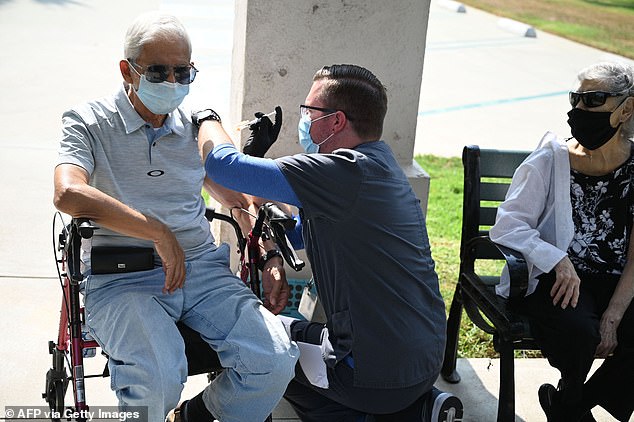
The FDA’s advisory committee has voted to recommend approval of the COVID-19 vaccine booster shots only in people aged 65 and older and at high risk of severe disease. Pictured: Nurse Kevin Grellman administers a third booster dose of Pfizer’s vaccine to Jose Gomez, 80, after his wife Armida Gomez, 81, received hers in Pasadena, California, August 2021
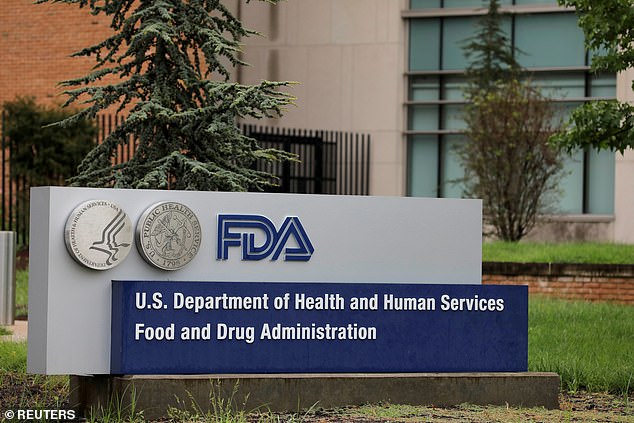
The first vote by the advisory committee voted 16-2 to not recommend approval of Covid booster shots of Pfizer’s vaccine for healthy people under age 65
Last month, boosters were approved for immunocompromised Americans who had received either the Pfizer or Moderna vaccine after data showed they were less likely to develop high antibody levels after two doses.
At least 2.04 million people in the U.S. have received booster doses as of Friday, according to data from the CDC.
The White House also announced last month booster shots would become available for all Americans starting on September 20 due to data suggesting waning efficacy of the initial shots.
At the time, Pfizer said its early data suggested people who received booster doses between six and 12 months after their final dose had high levels of protection.
The company filed for emergency use authorization for booster doses in late August and submitted data to the FDA, which made public on Wednesday.
The documents suggest that protection from two doses of the Pfizer vaccine declines from 96.2 percent at seven days after dose 2 to 90.1 percent two months later to 83.7 percent up to six months later.
What’s more, they cited data from Israel showing people fully vaccinated in January 2021 had a 2.26-fold increased risk for breakthrough infections compared to those fully vaccinated in April 2021.
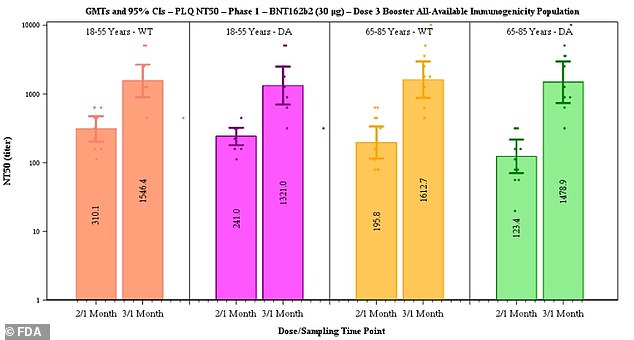
Pfizer said data suggested efficacy of two doses declines from 96.2% to 83.7% after six months but that a third dose boosts antibody levels (above)
Another Israeli study discussed in the documents showed that effectiveness against infection was 39 percent and against symptomatic disease was 40 percent from June 20, 2021 to July 17, 2021, when the Delta variant was the dominant strain.
Comparatively, between January and April, these rates were at 95 percent or higher.
The team also released data from a clinical trial involving 23 participants who participated in Pfizer’s early-stage trials last year.
Each had received two doses of the vaccine and were given a booster dose at least six months later.
Of the participants, 11 were in the younger adults group of those aged 18 to 55 and 12 were aged 65 to 85.
After the third dose, neutralizing antibodies against the original strain of the virus rose five-fold in the 18-to-55 age group and seven-fold in the 65-to-85 group.
Against the Delta variant, antibody levels after a booster shot rose five-fold in the younger adult group and 12-fold in the older adult group.
During the VRBPC meeting, members pushed back against these data.
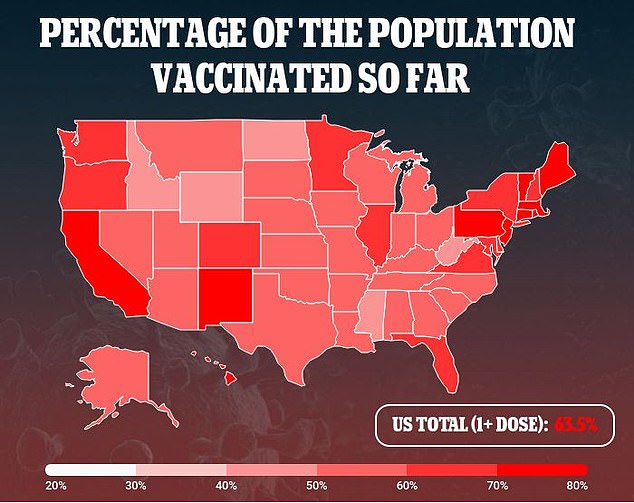
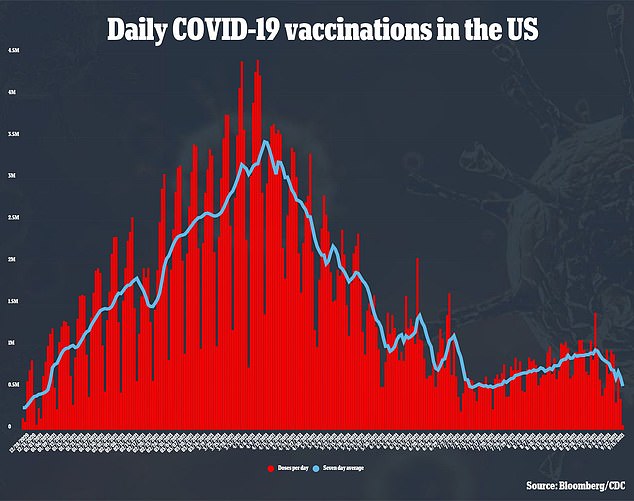
Dr Phil Krause, deputy director of the FDA’s Office of Vaccines Research and Review, said that Pfizer’s data had yet to be independently reviewed by experts.
‘One of the issues in this is that much of the data that’s been presented and being discussed today is not peer-reviewed and has not been reviewed by FDA,’ he said.
FDA and CDC officials have previously expressed to their doubts to the White House about the need for extra doses.
In a separate briefing document also published Wednesday, FDA scientists wrote with a skeptical tone about the need for booster shots.
‘Overall, data indicate that currently US-licensed or authorized COVID-19 vaccines still afford protection against severe COVID-19 disease and death in the United States,’ the scientists wrote.
They added that studies on booster doses have presented conflicting findings and that ‘known and unknown biases that can affect their reliability.’
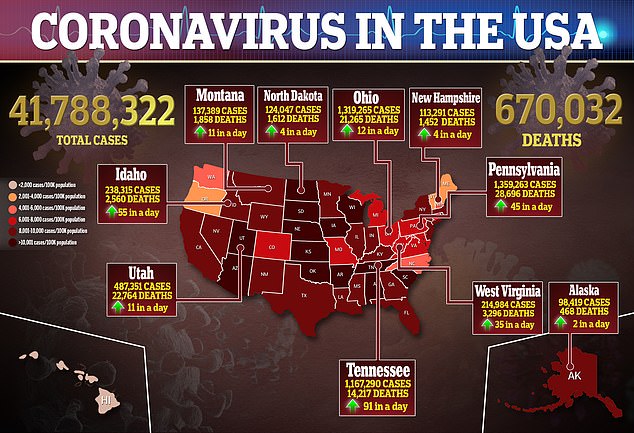
Source link : https://www.dailymail.co.uk/health/article-10002725/FDA-advisory-committee-votes-NOT-recommend-approval-booster-shots.html











